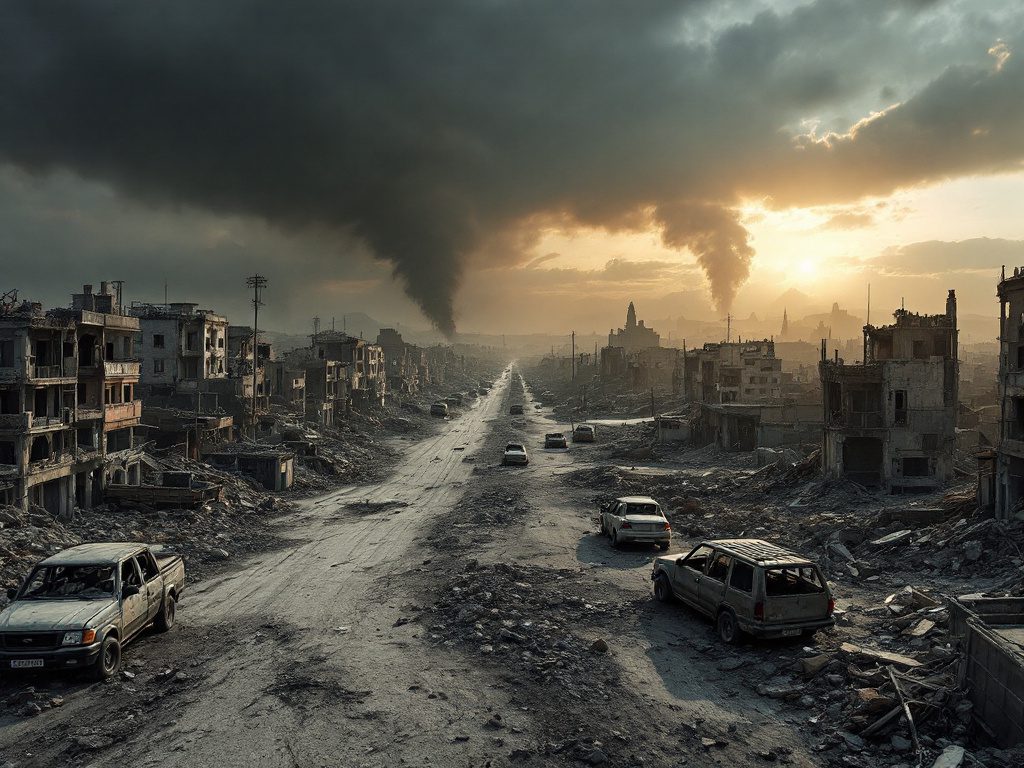The World Watches: Gaza at a Dangerous Crossroads
Will history record this moment as the point when the international community rose to protect innocent lives, or turned away as humanitarian norms were cast aside in Gaza? The European Union has sounded a resounding alarm over Israel’s plans to deepen its military footprint — and possibly establish a permanent occupation — in the Gaza Strip. This reaction comes not as a mere diplomatic formality, but as a clear admonition in a situation already defined by mass suffering and shattered lives.
News broke this week that Israel’s security cabinet approved an expanded offensive in Gaza, authorizing military advances that could fundamentally alter not only the fate of Palestinians, but regional stability. Israel’s Finance Minister Bezalel Smotrich, never one to temper rhetoric, declared: ‘We are finally going to occupy the Gaza Strip. We will stop being afraid of the word ‘occupation.’’ These words slam the door on decades of uneasy ambiguity, openly embracing permanent rule over a territory whose people, as Germany’s own foreign ministry reiterated, “belong to themselves.”
According to EU spokesperson Anouar El Anouni, the planned extension of Israel’s operation will only guarantee “further casualties and additional suffering for the Palestinian population.” The EU called for “utmost restraint,” a demand now echoed by a chorus of humanitarian organizations and foreign ministries from Berlin to Brussels — and far beyond.
Blockades, Aid, and the Erosion of Norms
On the ground, Gaza’s humanitarian catastrophe continues to spin out of control. Israel’s partial lifting of its blockade to allow private companies, not international NGOs or the United Nations, to conduct aid deliveries drew severe criticism from UN officials. The United Nations bluntly refused to cooperate, describing the aid plan as a violation of basic humanitarian principles and warning that it sets a perilous precedent.
A closer look reveals that humanitarian access is not some procedural box to tick, but a literal lifeline. Thousands of children go to bed hungry, basic services from healthcare to power have collapsed, and the prospect of a new offensive threatens to bulldoze what remains of the civil infrastructure. The Israeli government’s pivot toward privatized, tightly controlled relief undermines transparency and could divert aid from those most desperately in need.
“International law is not a menu from which powerful states may pick and choose items at their convenience. It applies — or it fails — for all of us.”
International outrage is not simply a matter of etiquette. The Israeli military’s tactics in Gaza, including the destruction of entire neighborhoods and widespread civilian casualties, have drawn warnings from the U.N. and groups like Human Rights Watch regarding potential violations of international law. Since October 2023, Israel’s campaign has reportedly claimed over 50,000 Palestinian lives — stark evidence of the cost borne primarily by civilians. Harvard legal scholar Noah Feldman warned last month that normalization of occupation tactics risks creating a “moral black hole” in global affairs, where atrocity becomes policy by precedent at the highest levels.
The Price of Escalation: Political Reckoning and the Path Forward
Beyond that, the proposed expansion of military operations is not merely a technical matter of defense strategy. It represents a profound shift with far-reaching regional and ethical consequences. The last time Israel invaded and temporarily occupied major parts of Gaza — during the 2008-2009 Operation Cast Lead — the world watched footage of devastated neighborhoods and mass funerals, but the political fallout was limited. This time, EU leaders and global publics alike indicate far less appetite for the “endless war” logic that has kept Gaza in a perpetual state of siege. Democratic societies, shaken by their own hard reckonings with colonial legacies and human rights abuses, increasingly demand accountable state conduct abroad as well as at home.
Consider the U.S. position: While Washington continues its material support for Israel, prominent lawmakers have called for conditional aid tied to compliance with international humanitarian law. According to a recent Pew Research survey, a majority of Americans under 35 now disapprove of the way Israel has handled the Gaza conflict — a generational tide turning away from old certainties. The EU’s stance echoes similar concerns, insisting that sustainable peace hinges on lifting the blockade, restoring vital social services, and, above all, negotiating with Palestinian representatives, not simply dictating terms through force. As EU spokesperson El Anouni emphasized, the bloc’s repeated calls for restraint are not “polite requests,” but a principled refusal to accept a future shaped by occupation and despair.
If you’re wondering whether history is on the side of occupation: Time and again, from Vietnam to Afghanistan, military dominance may win battles, but it never delivers the future that societies crave for their children. Progressive values—equality, justice, self-determination—cling to life even amid bombed hospitals and blackouts, refusing to die. Germany’s strong statement, that “Gaza belongs to Palestinians,” is not just an expression of solidarity, but a call for a world that means what it says when it invokes international law and the dignity of all people. One has to ask: where do we draw the red line, if not here?

